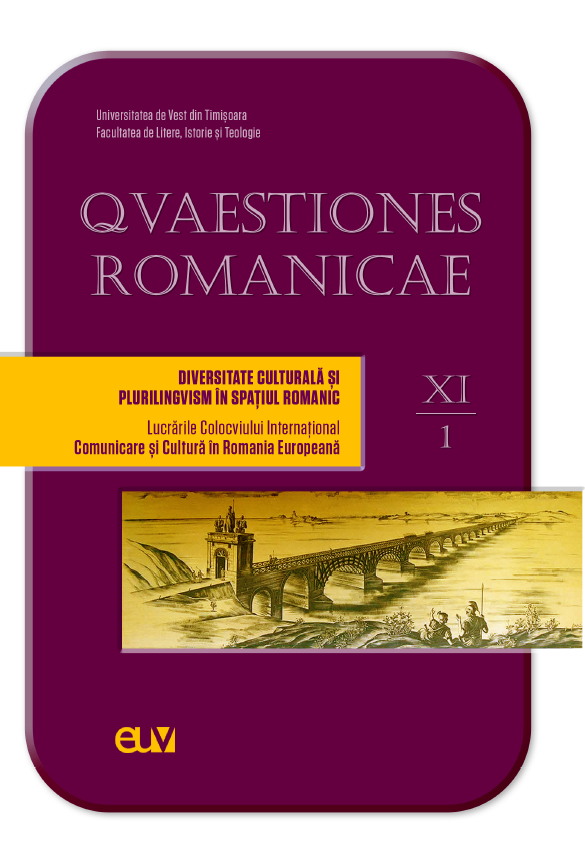Alter locus : l’Orient chez Anna de Noailles
Abstract: (The notion of Alter locus in Anna de Noailles’ poems: the Orient) The starting point for this analysis: Alter locus - a notion that refers to cultural diversity, which can be found in the poetic work of Anna de Noailles. The family tree of this writer has Greek maternal (Vogoride and Moussourus families), and Romanian paternal branches (Brancoveanu, Bibescu, Vacarescu families). This writer is a representative of the Eastern culture which she mixes with the Western culture where she is formed intellectually. Knowing the cultural and ethnic origins of her ancestors and illustrating them in her literary work were two goals that Princess Brancoveanu set herself from her youth, starting with her first book of verses, The Countless Heart (1901). The ancestral space of her grandparents, the Orient, is appearing as a literary theme in the poems of Anna de Noailles. It includes some features that the writer’s imagination makes coincide with the collective idea about the Balkan Orient. The objectives of our study: to illustrate the affective chronotope in Anna de Noailles’ oriental-inspired poems; to trace the characteristics of the literary geography of the Orient in a few of her poems. Our study will focus on these characteristics which describe the affective chronotope and sketch the literary and cultural geography of her family. For Anna de Noailles, ‘investigating’ the Orient means defining her origins with a ‘Levantine background’.
Keywords: Anna de Noailles, Orient, litterary geography, geopoetics, alter locus, alter ego.
Résumé : La prémisse de notre étude : Alter locus – notion qui renvoie à la diversité culturelle, repérable dans l’œuvre poétique d’Anna de Noailles. Partie de l’arbre généalogique dont les branches maternelles sont grecques (les Vogoride, les Moussourus) et les paternelles, roumaines (les Brancoveanu, les Bibescu, les Vacarescu), cette écrivaine est porteuse de la culture orientale qu’elle superpose à la culture occidentale où elle est formée. Connaître les racines culturelles et ethniques de ses ancêtres et les illustrer dans son œuvre ont été deux buts que cette Princesse Brancoveanu a suivis depuis sa jeunesse, dès le premier recueil de vers, Le Cœur innombrable (1901). L’espace ancestral de ces aïeuls, l’Orient, revient comme thème littéraire dans les poèmes d’Anna de Noailles et comporte quelques traits que l’imagination de l’écrivaine fait coïncider avec le mental collectif sur l’Orient balkanique. Les objectifs de notre étude : illustrer le chronotope affectif dans les poèmes d’inspiration orientale d’Anna de Noailles ; crayonner les attributs de la géographie littéraire de l’Orient dans quelques poèmes noaillens. Notre étude s’attardera sur ces caractéristiques qui décrivent le chronotope affectif et dessinent la géographie littéraire et culturelle de sa famille. ‘Enquêter’ l’Orient est, pour Anna de Noailles, définir ses racines à sève levantine.
Mots-clés : Anna de Noailles, Orient, géographie littéraire, géopoétique, alter locus, alter ego.
